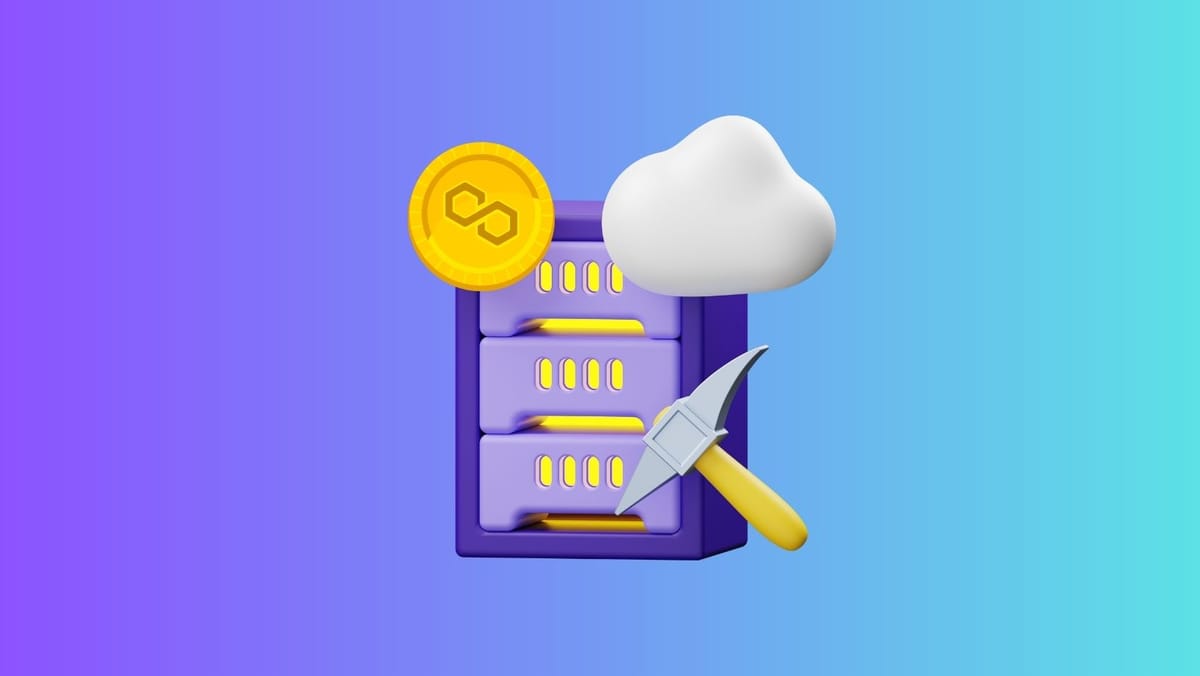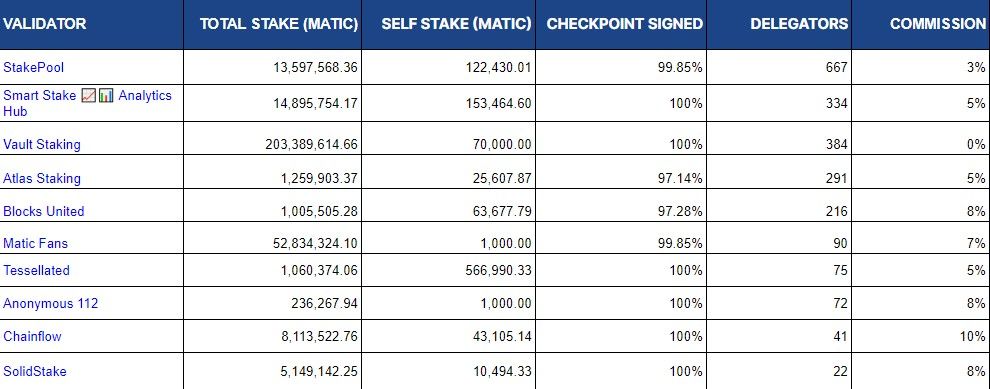Top 10 Polygon Validators - June 2023

As more projects and users flock to Polygon's ecosystem, the need for reliable validators becomes paramount. In this article, we will explore the top 10 Polygon validators in June 2023 and how to choose a validator for staking Polygon.
Polygon Staking: A Gateway to Consistent Profits
Polygon's native cryptocurrency is called MATIC. In addition to being used for transaction fees and as a medium of exchange, MATIC can also be staked to earn rewards.
Staking Polygon is locking up your tokens to support the network's operations and secure the blockchain. In return, participants receive staking rewards as extra MATIC tokens.
Staking on Polygon is typically done through delegation. Instead of running their own validator nodes, token holders can delegate their MATIC to a validator of their choice. Delegating allows users to participate in staking rewards without the technical complexities of running a validator.
The reward distribution depends on factors such as the number of tokens staked and the duration of the stake. Validators typically take a commission from the rewards earned by their delegators as a service fee. The specific reward rates and commission percentages can vary depending on the validators and the network's parameters.
How to Choose a Validator to Stake Polygon (MATIC)
Staking involves certain risks, such as slashing and potential loss of funds in case of a validator's malicious behavior. Choosing reputable validators with a track record of reliability and security is essential.
Here are a couple of things you want to consider before choosing a validator to stake MATIC:
- Commission Rate: Look for validators with a reasonable commission rate. While a 0% commission might seem attractive, validators with no commission may lack the incentive to stay online and provide reliable services (except if their reputation is valid)
- Commission Changes: Validators can change their commission rates. So it's important to keep an eye on the commission rates of your chosen validators. Validators abruptly switching from 0% to a high commission may not meet your expectations. Regularly reviewing the commission rates will help you stay informed.
- Uptime and Reliability: Choose validators with high uptime and a proven track record of reliability. Validators with a strong commitment to maintaining high availability demonstrate their dedication to the network. A reliable validator will minimize the chances of missed or delayed rewards due to downtime.
- Self-Staked Amount: Validators who have a significant amount of their own tokens (self-staked) demonstrate their confidence and commitment to the network. When validators have "skin in the game" by staking their own tokens, they have a vested interest in maintaining the network's integrity. Look for validators who demonstrate a reasonable amount of self-staking.
- Community Feedback: Assess the reputation and feedback surrounding validators within the Polygon community. Participate in community forums, social media channels, and discussion groups to gather insights and experiences from other delegators. Validators with positive reviews, active community engagement, and responsive support are more likely to be reliable and trustworthy.
Note that these tips are only general guidelines. Your final decision should be based on your own research and risk tolerance.
Top 10 Polygon Validators - June 2023 Updated
Here are our top 10 Polygon validators in June 2023:

Metrics explained:
- Total stake: The combined amount of a cryptocurrency being staked by the validator and delegators.
- Self-stake: The portion of a validator's own cryptocurrency holdings that they have chosen to stake on the network.
- Checkpoint signed: The number of blocks or checkpoints successfully confirmed by the validator.
- Delegators: Participants who delegate their cryptocurrency holdings to a specific validator to participate in staking and earn rewards.
- Commission: The fee charged by validators for their staking services, deducted from the rewards earned by delegators.
Polygon 2.0: Introduce New MATIC Staking
According to Polygon Labs, Polygon 2.0 is set to launch in the first quarter of 2023. This development will unlock 're-staking' opportunities, enabling staking participants to repurpose their MATIC tokens, supporting the network's security.
If you're interested in staking MATIC, check out our Polygon staking guide!
Popular Tags : Polygon's ecosystem, Polygon validators, validator for staking Polygon, Staking Polygon, Polygon 2.0





